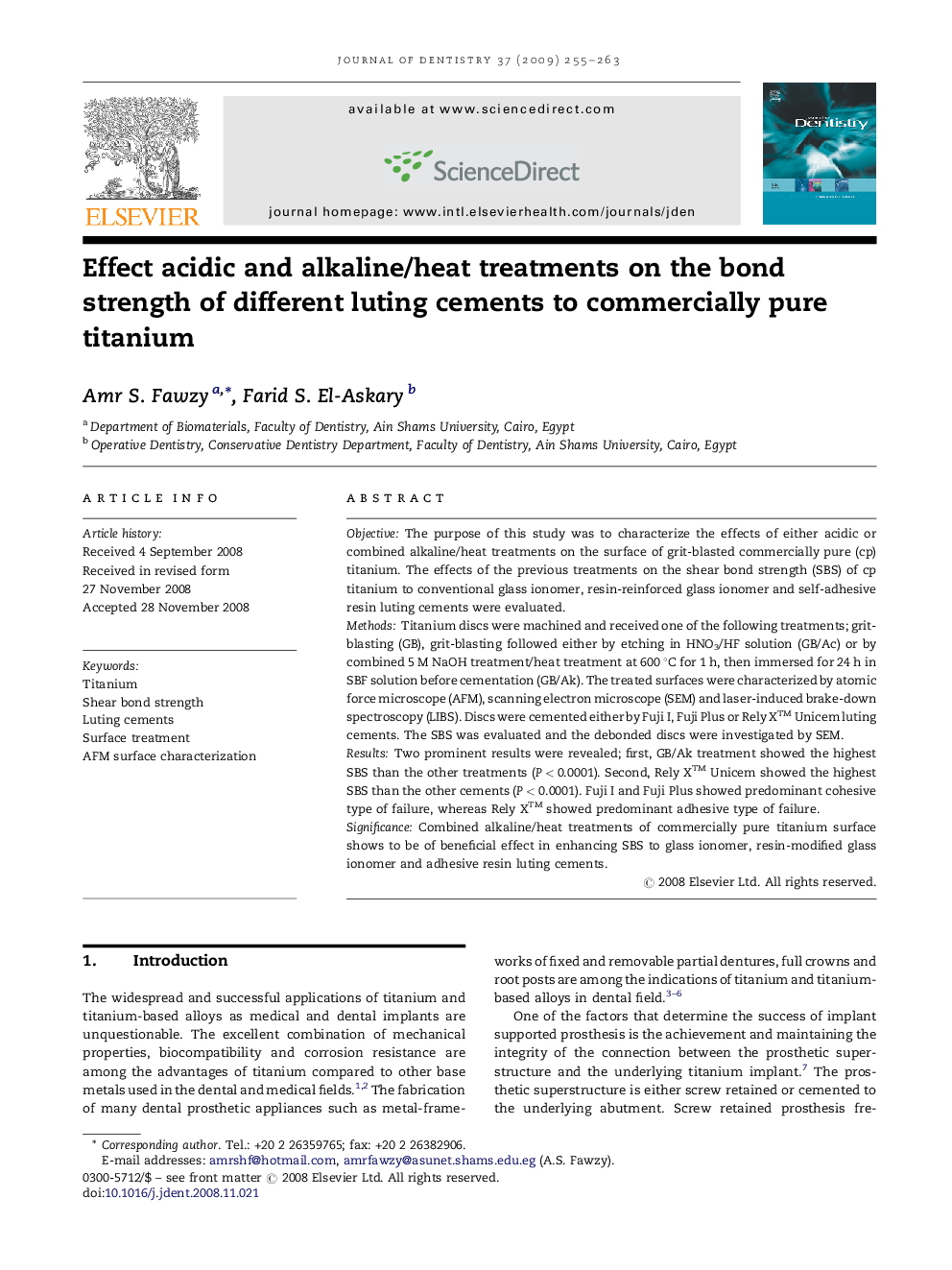| Article ID | Journal | Published Year | Pages | File Type |
|---|---|---|---|---|
| 3145367 | Journal of Dentistry | 2009 | 9 Pages |
ObjectiveThe purpose of this study was to characterize the effects of either acidic or combined alkaline/heat treatments on the surface of grit-blasted commercially pure (cp) titanium. The effects of the previous treatments on the shear bond strength (SBS) of cp titanium to conventional glass ionomer, resin-reinforced glass ionomer and self-adhesive resin luting cements were evaluated.MethodsTitanium discs were machined and received one of the following treatments; grit-blasting (GB), grit-blasting followed either by etching in HNO3/HF solution (GB/Ac) or by combined 5 M NaOH treatment/heat treatment at 600 °C for 1 h, then immersed for 24 h in SBF solution before cementation (GB/Ak). The treated surfaces were characterized by atomic force microscope (AFM), scanning electron microscope (SEM) and laser-induced brake-down spectroscopy (LIBS). Discs were cemented either by Fuji I, Fuji Plus or Rely X™ Unicem luting cements. The SBS was evaluated and the debonded discs were investigated by SEM.ResultsTwo prominent results were revealed; first, GB/Ak treatment showed the highest SBS than the other treatments (P < 0.0001). Second, Rely X™ Unicem showed the highest SBS than the other cements (P < 0.0001). Fuji I and Fuji Plus showed predominant cohesive type of failure, whereas Rely X™ showed predominant adhesive type of failure.SignificanceCombined alkaline/heat treatments of commercially pure titanium surface shows to be of beneficial effect in enhancing SBS to glass ionomer, resin-modified glass ionomer and adhesive resin luting cements.
